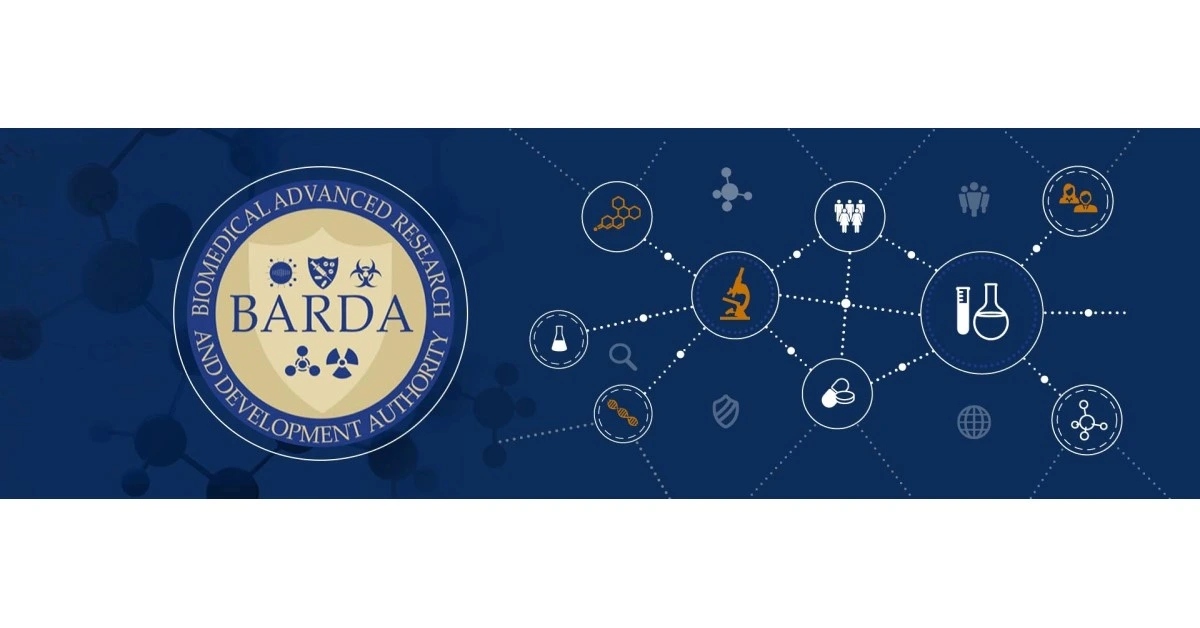
USA – The U.S. Administration for Strategic Preparedness and Response’s Biomedical Advanced Research and Development Authority (BARDA) has announced major investments aimed at bolstering both infectious disease diagnostics and nuclear emergency preparedness.
These initiatives include a US $9.2 million contract awarded to Revvity to advance a dual-purpose home test for COVID-19 and influenza, alongside a substantial contract with HOPO Therapeutics to develop a groundbreaking oral treatment for radioactive exposure.
BARDA’s funding for Revvity aims to expedite the development of an at-home test capable of detecting both SARS-CoV-2 and influenza A and B viruses, making infectious disease testing more accessible.
This molecular diagnostic platform, intended for quick and accurate results, is part of a broader strategy to improve public preparedness during outbreaks.
The 30-minute combination test, consisting of a reusable hub and a disposable cartridge, will provide users with lab-level precision right in their homes.
Funding from this contract will allow Revvity to conduct multi-site clinical studies to validate both the clinical accuracy and user-friendliness of the test.
These studies will serve as a crucial step toward securing U.S. Food and Drug Administration (FDA) marketing authorization.
“BARDA’s support will accelerate our efforts to create a reliable home-testing solution that can significantly ease the diagnostic process for users,” said a Revvity representative.
Sherlock Biosciences joins BARDA’s At-Home testing initiative
BARDA also recently partnered with Sherlock Biosciences to develop a similar at-home diagnostic platform.
Sherlock’s approach uses a single-use, handheld device powered by isothermal amplification technology, offering rapid 15-minute results from nasal swabs.
Though financial details were not disclosed, this partnership reflects a shared vision of developing accessible testing tools for widespread infectious diseases.
Sherlock’s device leverages proprietary SHERLOCK (Specific High-sensitivity Enzymatic Reporter unLOCKing) and INSPECTR (INternal Splint-Pairing Expression Cassette Translation Reaction) technologies, as well as the Veros handheld system acquired from Sense Biodetection.
Together, these innovations aim to provide quick, reliable results at ambient temperatures, suitable for immediate use during outbreaks.
HOPO Therapeutics Secures US $226 Million for nuclear emergency preparedness
In a parallel effort to strengthen national readiness for nuclear emergencies, BARDA awarded HOPO Therapeutics a contract worth up to US $226 million to advance the development of HOPO-101.
If successful, HOPO-101 could become the first oral treatment for radioactive heavy metal exposure, representing a breakthrough in emergency response options.
Currently, emergency treatments for radioactive contaminants such as plutonium and americium rely on intravenous diethylenetriamine pentaacetate (DTPA), which poses logistical challenges during large-scale incidents.
With HOPO-101, however, responders would have an easier-to-stockpile and deploy alternative.
“HOPO-101 has the potential to fill an important gap in nuclear response capabilities, especially in a world increasingly prone to geopolitical conflicts,” noted HOPO CEO Julian Rees.
An ongoing Phase I trial funded by the National Institutes of Health (NIH) is testing various doses in healthy volunteers, with early data suggesting that HOPO-101 may outperform existing treatments by up to 100 times in binding and eliminating radioactive elements.
Beyond nuclear emergencies, HOPO-101 shows promise in treating lead poisoning, a widespread issue affecting over 800 million children globally, particularly in low- and middle-income regions.
The initial US $9.4 million tranche of BARDA’s contract will support toxicology and pharmacology research, manufacturing, and further testing of HOPO-101’s efficacy in treating heavy metal exposure, with the remaining US $216 million contingent on milestone achievements.
XRP HEALTHCARE L.L.C | License Number: 2312867.01 | Dubai | © Copyright 2025 | All Rights Reserved